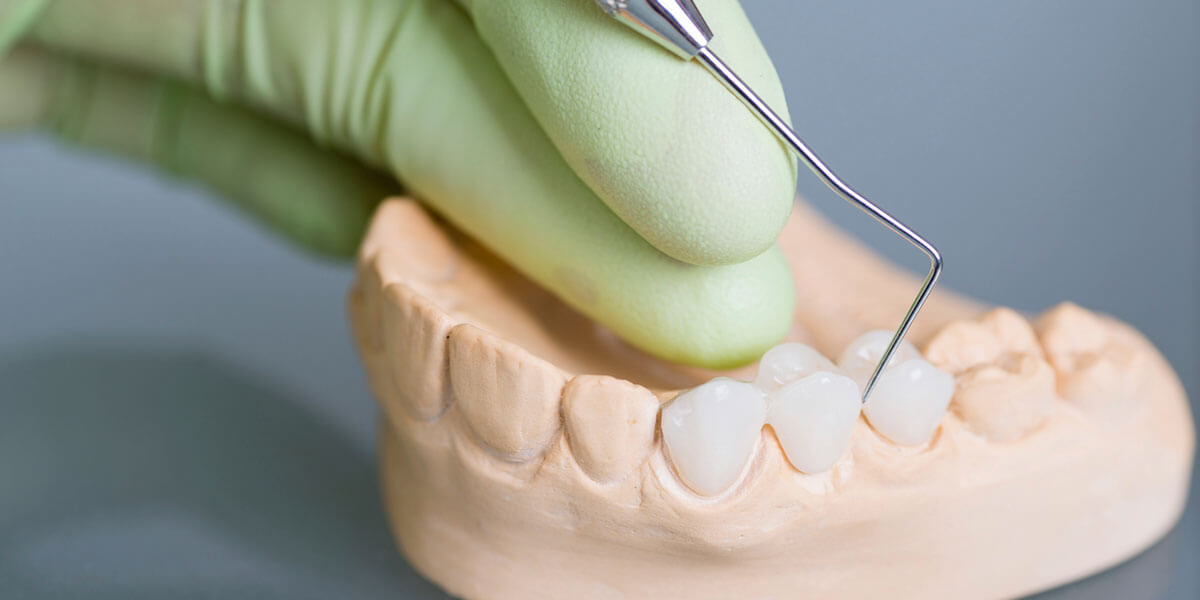Dental Bridges in St. Louis

Ballas Dental provides dental bridges in St. Louis, MO. Call 314-432-5544 to learn more and schedule an appointment.
Missing one or more teeth is common for many people.
Bridges are used to replace a single missing tooth or more than one adjacent teeth. There are a few different types of dental bridges, but they all involve a combination of abutments to support the bridge and pontics to replace the missing teeth. We use high-quality ceramic pontics for dental bridges, which means that your bridge will look completely natural and blend in with the rest of your smile. Each tooth in your bridge is custom-designed with exacting detail for a realistic appearance.
Depending on your needs and preferences, we will recommend one of the following options:
Traditional Dental Bridge
As you might guess from the name, a traditional bridge is the most common type of bridge. The two teeth on either side of the gap in your smile receive dental crowns, which allows them to serve as abutments that hold your bridge in place..
Maryland Bridge
A Maryland bridge bonds a metal or ceramic support framework to the abutment teeth rather than requiring the placement of crowns. This means that healthy teeth aren’t compromised to place your bridge, but it also results in a bridge that is more prone to breakage.
Cantilever Bridge
Cantilever bridges are similar to traditional bridges, except instead of having support from abutments on both sides of the gap, there is only one abutment used for support. Because cantilever bridges place more stress on the abutment tooth, they are typically only used when no other option is available.
Implant Supported Bridge
Implant-supported bridges are becoming increasingly popular because they don’t require support from adjacent teeth. Dental implants are used to replace the two outermost missing teeth, then these implants hold your bridge in place.
Frequently Asked Questions About Bridges
Is a bridge better than an implant?
Every patient is different and has their own unique needs, but generally speaking, dental implants are the better option because they prevent bone loss in the jaw.
How long does a dental bridge last?
The lifespan of your dental bridge depends on your oral habits and the type of bridge you have, but the average is five to 15 years. Implant-supported bridges usually last longer than other types.
What are the disadvantages of dental bridges?
The most significant disadvantage of traditional dental bridges is that they compromise the health of the supporting teeth. They also don’t address bone loss in the jaw. This is why dental implants are preferable.
What is the best option for replacing missing teeth?
For most patients, the best option is an implant-supported restoration, but we can make a recommendation for you during a consultation appointment.
How do you take care of a dental bridge?
You’ll take care of your dental bridge just like you would any other tooth, with one exception: you should floss under your bridge at least once a day. You should also avoid eating sticky or hard candy, as this can damage your bridge.
Contact our office to learn more about your restorative options and achieve the smile you have always wanted.
Call 314-432-5544 to schedule an appointment.
